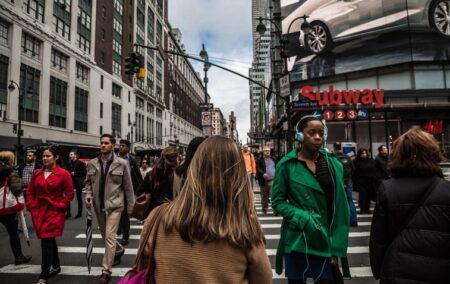The madness of race politics in South Africa was once again brought to the fore this week when it emerged that a coloured man in the Western Cape was accused of ‘fraud’ for saying he was African on his CV.
Glen Snyman, a teacher from Oudtshoorn, had applied for a job as a principal. In his CV he stated that his race was ‘African,’ rather than ‘coloured’. Although he had applied for the post in 2017 (he was unsuccessful in his application) the Western Cape Department of Education informed him at the end of last month that he would now face disciplinary charges.
The charge sheet allegedly stated: ‘You committed a common law offence, to wit fraud, by stating on your CV when applying for the principal post at Fezekile Secondary School that you are an African male, whereas in truth your records indicate that you are a coloured male and by doing so gain an advantage for purposes of being shortlisted.’
Subsequently, Western Cape MEC for education, Debbie Schäfer released a statement expressing shock that her department was charging Snyman, and saying its rationale was ‘anathema’ to her. Later it was reported that the province’s education department had dropped its charges against Snyman.
Snyman is apparently also something of an activist, being the founder of an organisation called People Against Race Classification. In a 2015 interview, Snyman said that race classification created ‘division, stereotyping and hatred among people’ and that South Africa should not classify people as it had during apartheid. He had also previously started a campaign to encourage coloured, Indian, and white South Africans to state they were ‘Black Africans’ when filling in forms requiring demographic data.
In a perverse way it is something of a pity that Snyman is not from a province that is not governed by the Democratic Alliance (DA), a party which recently (to much gnashing of teeth and clutching of pearls among the chattering classes) affirmed its commitment to non-racialism. In any one of the other eight provinces which are governed by the African National Congress (ANC), it is an open question whether an MEC would have taken the same line as Schäfer.
Long overdue
But a stunt like this is long overdue. Since the scrapping of the Population Registration Act in 1991 South Africa has no way of officially determining what a person’s race is. This has created some problems, given the enactment of race-based legislation and policy in South Africa. Some in the new cottage industry of B-BBEE Verification have suggested that, when a dispute arises, technology such as ‘genetic testing’ could be used in ‘determining’ race. ‘The question would then be: what percentage is required before you can declare yourself black?’
But do we want to be a society so dystopian that we use genetic testing to determine the race of individuals before they can benefit from government policies?
A continued focus on race also leads to bizarre and demeaning spectacles. Before the 2015 Rugby World Cup there was debate around whether Damian de Allende was white or coloured? His father confirmed he was indeed white. But is that where we want to be as a country?
A simple way to not follow this nightmare scenario of genetic testing is to end racial classification as the means of determining who in society is entitled to certain benefits and who isn’t. Rest assured, there will be more people who say their race is not what it is perceived to be in order to gain benefits. As South Africa continues to regress economically and black South Africans are perceived to be accruing benefits other races do not have (whether true or not), we will see more Snymans.
Morass
It is an open question whether B-BBEE has even benefited those it was ostensibly designed to help. Black South Africans still lag other races (particularly white South Africans) in all socio-economic indicators. And it’s unlikely that even more BEE and race-based policy will pull South Africa out of the morass it finds itself in, or pull millions out of poverty.
Others have written on these pages about why BEE and race-based policies fail to actually benefit ordinary South Africans, and distort prices. Furthermore, when we break inequality down by race group, the highest in-group inequality is found among black South Africans. Between 2006 and 2015 the only group in which inequality grew was black South Africans – white and Indian South Africans saw their in-group inequality decline, while for coloured South Africans it stayed constant.
Overall, inequality declined slightly for that period. This would suggest that a relatively small group of black South Africans is benefiting from race-based policies. In fact, if every white South African and their wealth disappeared tomorrow inequality in South Africa would rise, rather than decline.
It’s time to look at a new policy to help the disadvantaged, one which is not based simply on race. And this idea seems to be gaining traction. Mmusi Maimane’s One South Africa movement recently released policy proposals which argue for such an alternative, and Herman Mashaba and his ActionSA have made similar noises.
But as long as benefits are (perceived) as being doled out on the basis of race, with black South Africans ostensibly being the primary beneficiaries, Glen Snyman won’t be the last person to commit ‘fraud’ regarding his racial identity.
If you like what you have just read, subscribe to the Daily Friend
Photo by Christopher Burns on Unsplash

